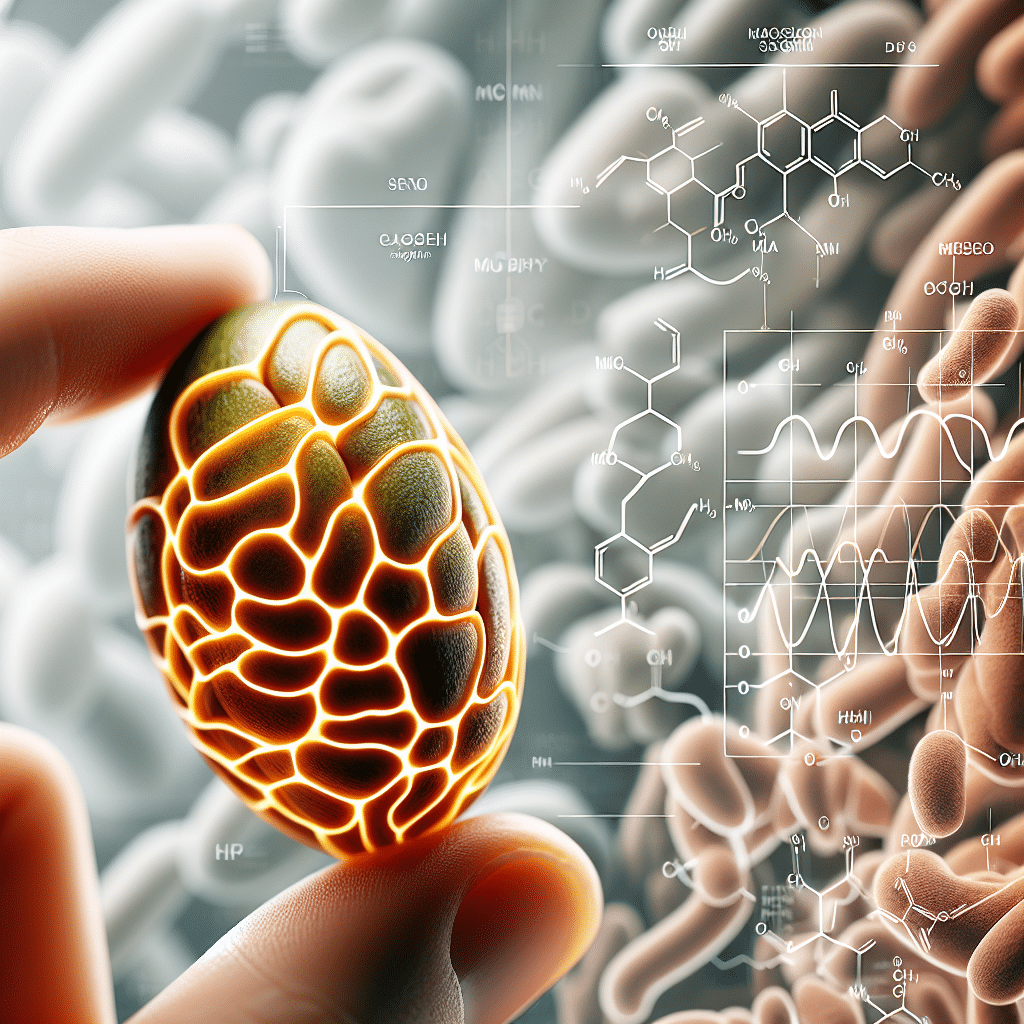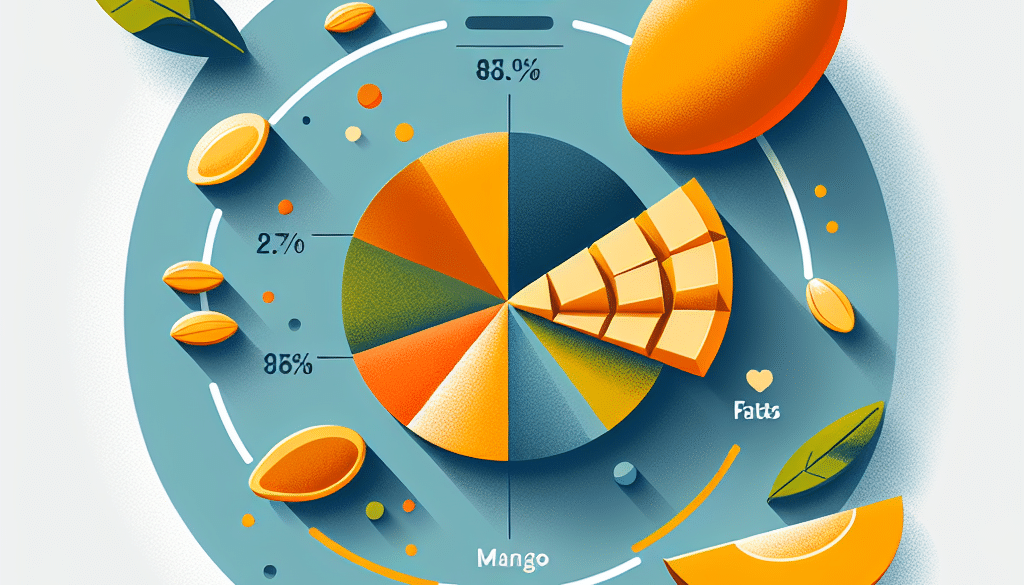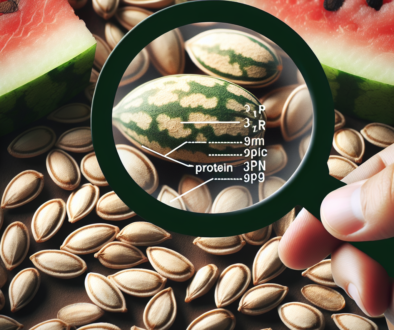Do Mango Seeds Have Protein?
-
Table of Contents
- Mango Seeds: A Surprising Source of Protein?
- Understanding the Nutritional Profile of Mango Seeds
- Protein Content in Mango Seeds
- Health Benefits of Mango Seed Protein
- Utilization of Mango Seed Protein
- Challenges and Considerations
- Case Studies and Research
- Conclusion: The Untapped Potential of Mango Seed Protein
- Discover ETprotein’s Range of Plant-Based Proteins
Mango Seeds: A Surprising Source of Protein?

When we think of mangoes, we often envision the sweet, juicy flesh of the fruit, a tropical delight enjoyed worldwide. However, the mango seed, which is typically discarded, may hold nutritional secrets that are often overlooked. One question that arises is whether these seeds contain protein, an essential macronutrient vital for building and repairing tissues in the body. This article delves into the nutritional composition of mango seeds, focusing on their protein content, and explores the potential benefits and applications of this often-wasted part of the fruit.
Understanding the Nutritional Profile of Mango Seeds
Mango seeds, also known as stones or kernels, are the inner part of the pit that is encased within the hard endocarp. While the seed is not typically consumed in a standard diet, it has been used in traditional medicine and as a source of oil or butter. To understand the nutritional value of mango seeds, it’s essential to look at their composition.
- Macronutrients: Mango seeds contain carbohydrates, fats, and proteins. The exact proportions can vary depending on the mango variety and growing conditions.
- Micronutrients: They also provide a range of vitamins and minerals, although in smaller amounts compared to the flesh.
- Dietary Fiber: Mango seeds are a good source of dietary fiber, which is beneficial for digestive health.
Protein Content in Mango Seeds
Proteins are made up of amino acids, which are the building blocks for many structures and functions within the human body. The protein content in mango seeds can be surprising. Studies have shown that mango seeds can contain a significant amount of protein, ranging from 6 to 13 percent by weight. This protein content is comparable to other plant-based sources such as certain grains and legumes.
Health Benefits of Mango Seed Protein
The protein found in mango seeds is not only present in notable amounts but also encompasses essential amino acids necessary for human health. Here are some potential health benefits:
- Weight Management: The protein in mango seeds can contribute to a feeling of fullness, which may help in weight management efforts.
- Muscle Maintenance: Adequate protein intake is crucial for the maintenance and repair of muscle tissue, especially for those engaged in regular physical activity.
- Metabolic Health: Proteins play a role in various metabolic processes, and consuming enough protein is important for overall health.
Utilization of Mango Seed Protein
Despite its potential, the protein in mango seeds is not widely used. However, there are several ways this resource could be tapped:
- Flour Production: Mango seeds can be ground into a flour that is rich in protein and can be used in baking or as a supplement.
- Extraction of Protein Concentrates: Similar to other seeds, protein concentrates can be extracted from mango seeds for use in food products.
- Animal Feed: The protein-rich residue from mango seed processing can be used as a component in animal feed.
Challenges and Considerations
While mango seed protein offers benefits, there are challenges to its widespread adoption:
- Extraction Process: The process of extracting protein from mango seeds can be complex and costly.
- Taste and Texture: Mango seed flour or protein concentrates may affect the taste and texture of food products, which could limit their use.
- Availability: Mango seeds are seasonal and may not be available year-round in some regions.
Case Studies and Research
Research into the use of mango seed protein is ongoing. Studies have investigated its potential as a food additive and its effects on health. For example, a study published in the “Journal of Food Science and Technology” explored the use of mango seed kernel powder as a functional food ingredient, highlighting its high dietary fiber and antioxidant properties.
Conclusion: The Untapped Potential of Mango Seed Protein
In conclusion, mango seeds do contain protein, and this protein holds promise for various applications, from food production to health supplements. While there are challenges to its utilization, the potential benefits warrant further exploration and research. As the world seeks sustainable and alternative protein sources, mango seed protein could become a valuable addition to our diets.
Discover ETprotein’s Range of Plant-Based Proteins
If you’re interested in exploring plant-based proteins, ETprotein offers a wide range of high-quality options. Their products, including organic rice protein, pea protein, and various seed proteins, are perfect for those looking to incorporate more plant-based nutrients into their diets. With a commitment to non-GMO, allergen-free ingredients, ETprotein caters to a diverse range of industries and dietary needs.
About ETprotein:
ETprotein, a reputable protein and L-(+)-Ergothioneine (EGT) Chinese factory manufacturer and supplier, is renowned for producing, stocking, exporting, and delivering the highest quality organic bulk vegan proteins and L-(+)-Ergothioneine. They include Organic rice protein, clear rice protein, pea protein, clear pea protein, watermelon seed protein, pumpkin seed protein, sunflower seed protein, mung bean protein, peanut protein, and L-(+)-Ergothioneine EGT Pharmaceutical grade, L-(+)-Ergothioneine EGT food grade, L-(+)-Ergothioneine EGT cosmetic grade, L-(+)-Ergothioneine EGT reference grade and L-(+)-Ergothioneine EGT standard. Their offerings, characterized by a neutral taste, non-GMO, allergen-free attributes, with L-(+)-Ergothioneine purity over 98%, 99%, cater to a diverse range of industries. They serve nutraceutical, pharmaceutical, cosmeceutical, veterinary, as well as food and beverage finished product distributors, traders, and manufacturers across Europe, USA, Canada, Australia, Thailand, Japan, Korea, Brazil, and Chile, among others.
ETprotein specialization includes exporting and delivering tailor-made protein powder and finished nutritional supplements. Their extensive product range covers sectors like Food and Beverage, Sports Nutrition, Weight Management, Dietary Supplements, Health and Wellness Products, and Infant Formula, ensuring comprehensive solutions to meet all your protein needs.
As a trusted company by leading global food and beverage brands and Fortune 500 companies, ETprotein reinforces China’s reputation in the global arena. For more information or to sample their products, please contact them and email sales(at)ETprotein.com today.












